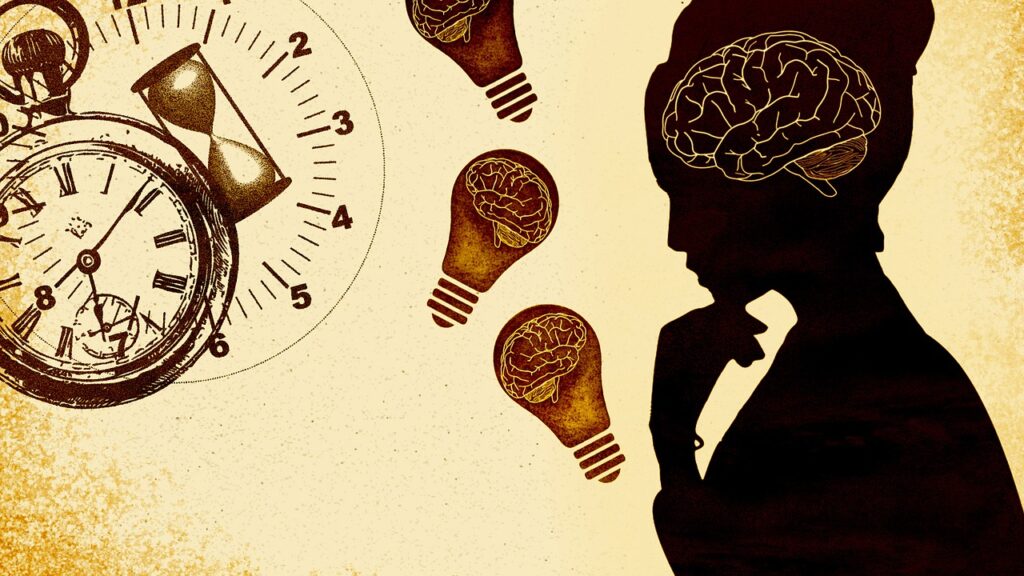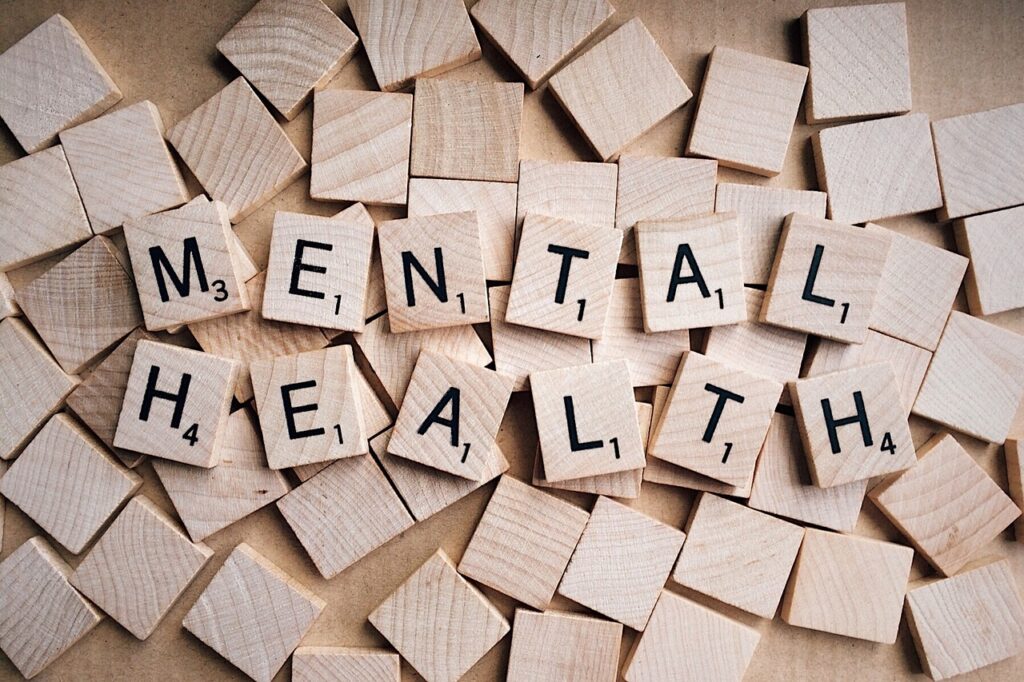Mental health counselors serve as pillars of support, guiding individuals through emotional and psychological challenges with expertise and compassion. Their role extends beyond individual sessions, contributing to the broader tapestry of societal well-being. Through targeted therapy and personalized care plans, they empower clients, fostering resilience and promoting mental health as an integral component of overall health.
What Does a Mental Health Counselor Do?
Mental health counselors stand as beacons of support in the journey towards psychological well-being. Their role extends far beyond the confines of an office; they touch lives and foster hope. At its core, the profession is defined by a commitment to assist individuals, families, and groups in achieving optimal mental and emotional health. A mental health counselor’s day is a tapestry woven with diverse responsibilities, each thread as crucial as the next.
Empathy is the cornerstone of their practice, enabling them to connect with clients in a meaningful way. They employ active listening, a skill that allows them to hear not just the words, but the emotions and experiences behind them. These interactions are underpinned by effective communication, ensuring that the counselor and client are aligned on goals and therapeutic approaches.
From developing treatment plans to facilitating therapeutic sessions, the daily activities of a mental health counselor are varied. They assess and diagnose mental health conditions, provide individual and group counseling, and often coordinate with other healthcare professionals to deliver comprehensive care. Their work is a testament to the profound impact that compassionate, skilled mental health care can have on individuals and society as a whole.
The role of a mental health counselor is not static but evolves with the needs of clients and the advancements in the field. This dynamic career requires a dedication to personal growth and professional development, ensuring that the care provided is grounded in the latest research and best practices. It is a career that demands a high level of commitment, but it is also one that offers the profound satisfaction of making a real difference in the lives of others.
Schools Offering Degrees in Mental Health Counseling

Mental Health Counseling Degrees from Capella
Capella offers a Master’s Degree in Clinical Mental Health Counseling; Capella also offers a Bachelor’s Degree in Psychology: Pre-Counseling and Therapy

Mental Health Counseling Degrees from Liberty
MA in Clinical Mental Health Counseling

Mental Health Counseling Degrees from SNHU
MS in Clinical Mental Health Counseling
The Educational Journey
Embarking on the path to becoming a mental health counselor is a commitment to fostering wellness in individuals and communities. A crucial step in this journey is meeting the rigorous mental health counselor education requirements. Prospective counselors must equip themselves with a deep understanding of psychological theories and therapeutic techniques, which begins with a carefully selected undergraduate degree and culminates in a specialized graduate program.
When it comes to choosing the right mental health counselor degree, it’s essential to consider programs that not only fulfill academic prerequisites but also resonate with your professional aspirations. A degree in counseling, psychology, social work, or a related field often lays the groundwork for advanced studies. The pursuit of a master’s degree in mental health counseling is imperative, as it provides the specialized training necessary to navigate the complexities of mental health care.
Many students are discovering the benefits of pursuing a mental health counselor degree online. Online programs offer flexibility, allowing adult learners and non-traditional students to balance their studies with personal and professional responsibilities. With the possibility of attending top programs from anywhere in the world, an online degree can be a gateway to gaining comprehensive knowledge and skills without the constraints of a traditional classroom setting.
Undergraduate Preparation: Laying the Foundation
The journey to becoming a mental health counselor begins with undergraduate education. It’s a pivotal stage where students lay the academic groundwork for their future specialization. During a bachelor’s degree program, aspiring counselors are advised to focus on fields related to psychology, sociology, or human services. These areas of study provide a robust foundation in understanding human behavior, social systems, and the various factors that influence mental health.
While a specific major is not always mandated, courses in developmental psychology, abnormal psychology, statistics, and research methods are highly recommended. These subjects equip students with critical thinking skills and a thorough understanding of psychological principles, which are essential for success in graduate studies and beyond.
Moreover, a bachelor’s degree serves as a stepping stone towards the advanced qualifications required in the mental health counseling field. It prepares students for the rigors of a master’s program, which is a prerequisite for licensure in most states. The undergraduate experience also offers opportunities to volunteer or work in settings that provide exposure to mental health services, thereby offering practical insights and a clearer vision of a career as a mental health counselor.

Advanced Education: Mastering the Field
Embarking on a career as a mental health counselor requires a foundation of advanced education. A master’s degree in counseling isn’t just a formality; it’s an essential step in acquiring the depth of knowledge and hands-on experience needed to provide effective support to those in need. This advanced degree equips aspiring counselors with the theoretical understanding and practical skills that can only be honed through rigorous study and supervised clinical practice.
However, obtaining a master’s degree is more than just an academic pursuit. It’s about aligning one’s educational path with the stringent national standards and certification requirements that govern the profession. The curriculum is designed to meet the criteria set by professional counseling organizations, ensuring that upon graduation, you are well-prepared not only to pass licensure exams but also to excel in your practice.
Licensure: The Gateway to Professional Practice
Entering the field of mental health counseling requires more than just a passion for helping others; it necessitates a formal acknowledgment of your expertise and dedication through state licensure. Licensure is not just a bureaucratic step; it is a testament to your commitment to ethical practice and your readiness to take on the profound responsibility of supporting mental wellness.
The journey toward licensure is governed by specific criteria, which vary from one state to another. Generally, it involves completing your graduate education, gaining supervised clinical experience, and demonstrating your knowledge and skills on a nationally recognized exam. These steps are designed to ensure that all mental health counselors meet a high standard of professional practice, providing the best possible care to those in need.
One crucial milestone on this journey is the mandatory licensure examinations. Often, candidates must pass the National Counselor Examination (NCE) or the National Clinical Mental Health Counseling Examination (NCMHCE). These exams assess a range of competencies, from your understanding of assessment and diagnosis to your grasp of the ethical frameworks that guide the counseling profession.
Passing these exams is not merely about memorizing information; it is about demonstrating a deep understanding of the complex nature of mental health challenges and the nuanced approaches required to address them. It confirms that a counselor is equipped with the knowledge and judgment to make decisions that can profoundly affect an individual’s life course.
For those embarking on this career path, it is essential to approach licensure as a critical component of your professional identity. It is a rigorous process that both protects the public and elevates the profession by ensuring that all mental health counselors are competent, ethical, and prepared to make a positive impact in the lives of their clients.

Gaining Real-World Experience
The journey to becoming a mental health counselor is incomplete without the vital component of supervised clinical experience. This hands-on practice is where theoretical knowledge from the classroom meets the unpredictable and dynamic world of mental health. It’s during this time that burgeoning counselors develop a deeper understanding of their craft, refine their approach with clients, and integrate their learning into practical, effective counseling strategies.
Supervised clinical experience is not just a mandatory checkpoint on the path to licensure—it’s a crucible for professional growth. Under the guidance of seasoned practitioners, trainee counselors learn to navigate the complexities of mental health issues, ethical dilemmas, and diverse client populations. This immersive experience is essential in shaping competent, empathetic counselors who are ready to make a positive impact on the lives of those they will serve.
Finding and completing the required clinical hours might seem daunting at first. However, many educational institutions provide resources to help students connect with placement opportunities. Additionally, professional associations related to mental health counseling often have networks that students can tap into for finding clinical sites. It’s essential to select settings that not only fulfill the hour requirements but also resonate with one’s professional interests and career goals.
As you embark on this quest for real-world experience, remember that each hour spent in a clinical setting is an investment in your future as a mental health counselor. Embrace each challenge as an opportunity to learn and grow, and you’ll emerge not just with the necessary credentials, but with the confidence and skills to excel in your chosen field.
Certification: Beyond the Degree
Securing a degree in mental health counseling is a monumental step in the journey to becoming a professional in the field. However, the pursuit of excellence does not end there. Mental health counselors have the opportunity to obtain various certifications that serve as a testament to their specialized skills and commitment to ongoing professional development.
Certification comes with several benefits that can significantly bolster a counselor’s career and expertise. It demonstrates to potential employers and clients alike a dedication to the highest standards of practice. Certifications can often lead to increased trust from clients, enhanced credibility in the professional community, and may even open doors to higher-level positions and specialized roles.
Moreover, the process of gaining certification typically involves continued education and examination, ensuring that counselors stay current with the latest practices and knowledge in the field of mental health. This commitment to lifelong learning is integral to providing the best possible care to clients and can help counselors navigate the intricacies of mental health with greater competence and confidence.

Maintaining Professional Standards in the Mental Health Field
The pursuit of knowledge is an unending journey, especially in the field of mental health counseling. As professionals dedicated to supporting the well-being of others, mental health counselors recognize that continuing education is not merely a requirement but a cornerstone of their practice. Lifelong learning empowers counselors to stay abreast of the latest therapeutic techniques, understand emerging research, and respond effectively to the evolving needs of their clients.
Staying informed about new developments in mental health not only enriches a counselor’s expertise but also ensures that the care provided is grounded in the most current evidence-based practices. This dedication to continuous improvement reflects a commitment to the highest standards of care and the ethical responsibility to serve clients with the most effective tools available.
Beyond the enrichment of skills and knowledge, there’s also a practical aspect to ongoing education: keeping your license and certifications current. In the dynamic landscape of mental health counseling, professional credentials must be periodically renewed. This often involves completing a certain number of continuing education units (CEUs) and adhering to the guidelines set forth by licensing boards. Counselors must be proactive in managing their licensure and certifications, ensuring that they remain in good standing and legally eligible to practice.
Skills and Qualities of a Successful Mental Health Counselor
The journey to becoming a mental health counselor extends beyond academic achievements; it requires a unique set of skills and personal attributes that ensure effectiveness in this challenging yet rewarding field. At the heart of a successful mental health counselor are essential skills such as empathy, which allows for a deep understanding of clients’ emotions, and active listening, which is crucial for building trust and fostering a safe space for clients to share their thoughts and feelings.
Communication skills are equally indispensable, enabling counselors to convey ideas, suggestions, and feedback in a clear and supportive manner. Problem-solving abilities allow mental health counselors to help clients navigate complex emotional challenges and develop coping strategies. Moreover, cultural competency is essential in today’s diverse society, as it equips counselors to understand and respect differences in clients’ backgrounds, beliefs, and experiences.
To thrive as a mental health counselor, one must also possess a strong sense of self-awareness and introspection. Assessing your strengths and suitability for the role involves a candid evaluation of your own mental and emotional well-being, as well as a commitment to personal growth and professional development. The ability to maintain professional boundaries and manage personal stress is paramount to not only providing the best care to clients but also to
Career Outlook and Advancement for Mental Health Counselors
Embarking on a career as a mental health counselor promises not only a path filled with personal fulfillment and the opportunity to make a significant impact on the lives of others but also presents a landscape of professional growth and financial stability. As you consider your future in this field, understanding the potential for earnings and career development is crucial.
The salary for a mental health counselor can vary widely based on factors such as location, experience, and specialization. However, it’s heartening to note that the dedication to this profession is met with a compensatory reward that acknowledges the critical nature of the work. Those entering the field can look forward to a competitive starting salary, with increases commensurate with experience and additional certifications.
Moving beyond the financial aspects, the job outlook for mental health counselors is decidedly positive. With a growing recognition of the importance of mental health services, the demand for qualified professionals in this arena is on the rise. This heightened demand not only suggests a buoyant job market but also opens the door to various opportunities for career advancement. Experienced counselors may progress to supervisory roles, opt for private practice, or specialize further to cater to specific populations or conditions.
Embarking on a Meaningful Career
The path to becoming a mental health counselor is indeed a comprehensive process, encompassing a rigorous blend of academic study, hands-on clinical experience, and ongoing professional development. This journey not only equips aspiring counselors with the necessary skills and knowledge to support those in need but also fosters a deep sense of personal and professional fulfillment.
